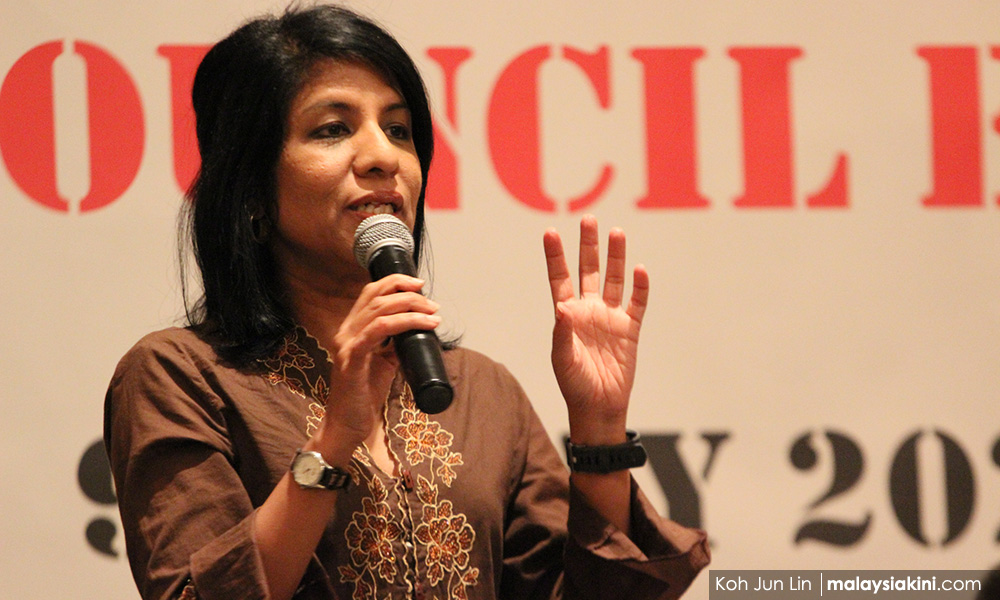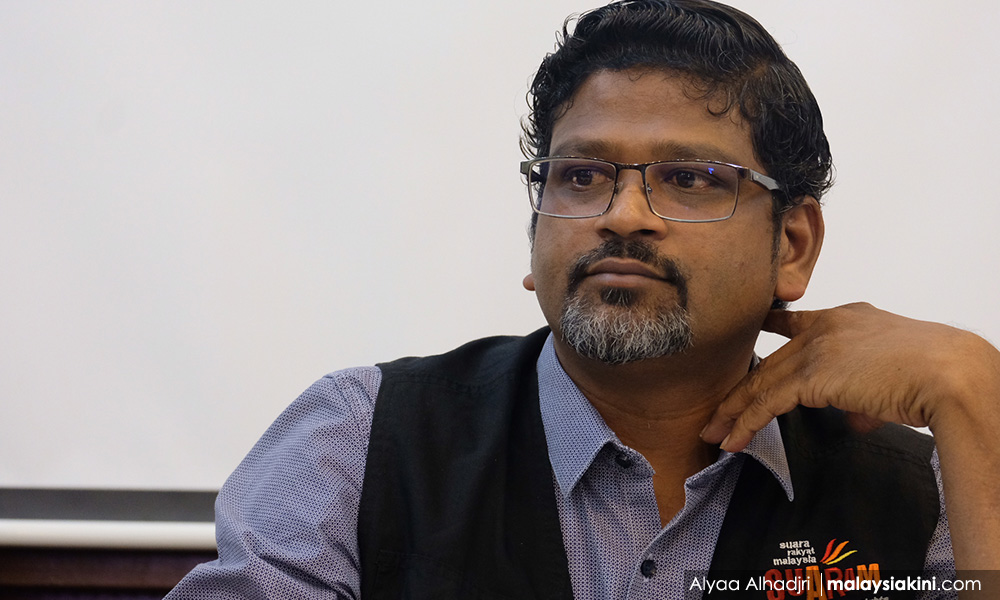The swearing-in of Ismail Sabri Yaakob as the country's ninth prime minister scheduled this afternoon marks the return of Umno to power, barely three years after it was defeated for the first time in a general election.
Ismail Sabri was also the deputy prime minister in Muhyiddin Yassin's Perikatan Nasional cabinet, which was deemed by some as a government that has failed to manage the country well, particularly in battling the Covid-19 pandemic and economic crisis that it brought about.
Several activists known for their role in fighting for a better Malaysia shared with Malaysiakini their scepticism on the new government that is to be formed.

Anti-corruption activist Cynthia Gabriel, who leads the Centre to Combat Corruption & Cronyism (C4 Centre), said they are not expecting many changes would be brought by the incoming administration.
"(We are) back to business as usual. It is bizarre really, that the 'kerajaan gagal' that resigned is back.
"We are dismayed. Unless Ismail Sabri commits to a more inclusive and accountable government, nothing will change, more Malaysians will be further victimised and in dire straits," she told Malaysiakini in a text message.
"Also, he must prove his majority through a confidence vote," Gabriel added.
Human rights advocate Yap Swee Seng also shared a similar sentiment, pointing out that Ismail Sabri is facing an uphill task to deal with the trust deficit as he was part of the previous PN government.
"As his performance during the PN government has been disappointing to many, he would have a serious trust deficit to deal with as the new PM.
"If he is going to overcome the lack of public confidence in him, especially in dealing with the Covid-19 pandemic and the recovery of the economy, his government should be more open, transparent, inclusive and willing to engage and listen to the different stakeholders, including opposition parties, experts, civil society, academia and the general public," said Yap, who now leads electoral observer NGO Bersih 2.0 as its executive director.
Yap was referring to Ismail Sabri's role in the previous cabinet, where he was the minister in charge of the National Security Council which oversees the movement control order and enforcement of pandemic prevention laws.
He also expressed hope that Ismail Sabri would learn from the previous government's mistake and work together with the opposition to introduce institutional reforms.
This should be done before it is too late as what happened to Muhyiddin, he added.
"I hope Ismail Sabri as the new prime minister will learn from the lessons of Muhyiddin and starts introducing institutional reforms in negotiation with the opposition parties in order to have a stable government with confidence and supply agreement, given his 114 votes from MPs is similarly with what Muhyiddin used to get.
"He should not wait until his government has become a minority government then only reach out to the opposition to offer a cross-party reform package."

Suaram executive director Sevan Doraisamy, meanwhile, believed that the new government would be like "an old torchlight with a new battery".
He said the previous PN government had "failed miserably" in managing the pandemic and resulted in mounting pressure that led to Muhyiddin stepping down.
Instead of running the country, PN was more focused on playing power structure, he claimed.
"Ismail Sabri is part of the failed government, system failure, and management failure. And he is coming on top now.
"At the end of the day, we get the same old management, even (if) there are some changes between the ministers.
"It is going to be another power tussle as well. Things are not going to settle down. It will be like an old torchlight that is given new batteries, working at first but will end up with the same problem," Sevan said.
The activist hoped to see a unity government or power-sharing structure, which can focus on the country's Covid-19 situation. - Mkini




No comments:
Post a Comment
Note: Only a member of this blog may post a comment.